Floods, coastal erosion, and urban surface water management pose significant challenges to communities worldwide. As climate change intensifies, these issues become even more critical. This was why GreenBlue Urban was delighted to exhibit at this year’s Flood & Coast event held at the Telford International Centre, attracting a myriad of industry-wide speakers, fellow exhibitors, and attendees from across the globe, to debate on the impacts of climate change and in particular effects of flooding on our urban and coastal regions.
With a key focus on strategic actions for effective management, developing effective flood and coastal erosion frameworks requires a comprehensive approach, not just to implementing land-use planning and sustainable urban development practices, but also to encouraging public awareness and providing education campaigns on flood risks. Panels discussed, tactical actions required to implement safety measures, including collaboration, investment, place-based decisions, technology, skills, and training.
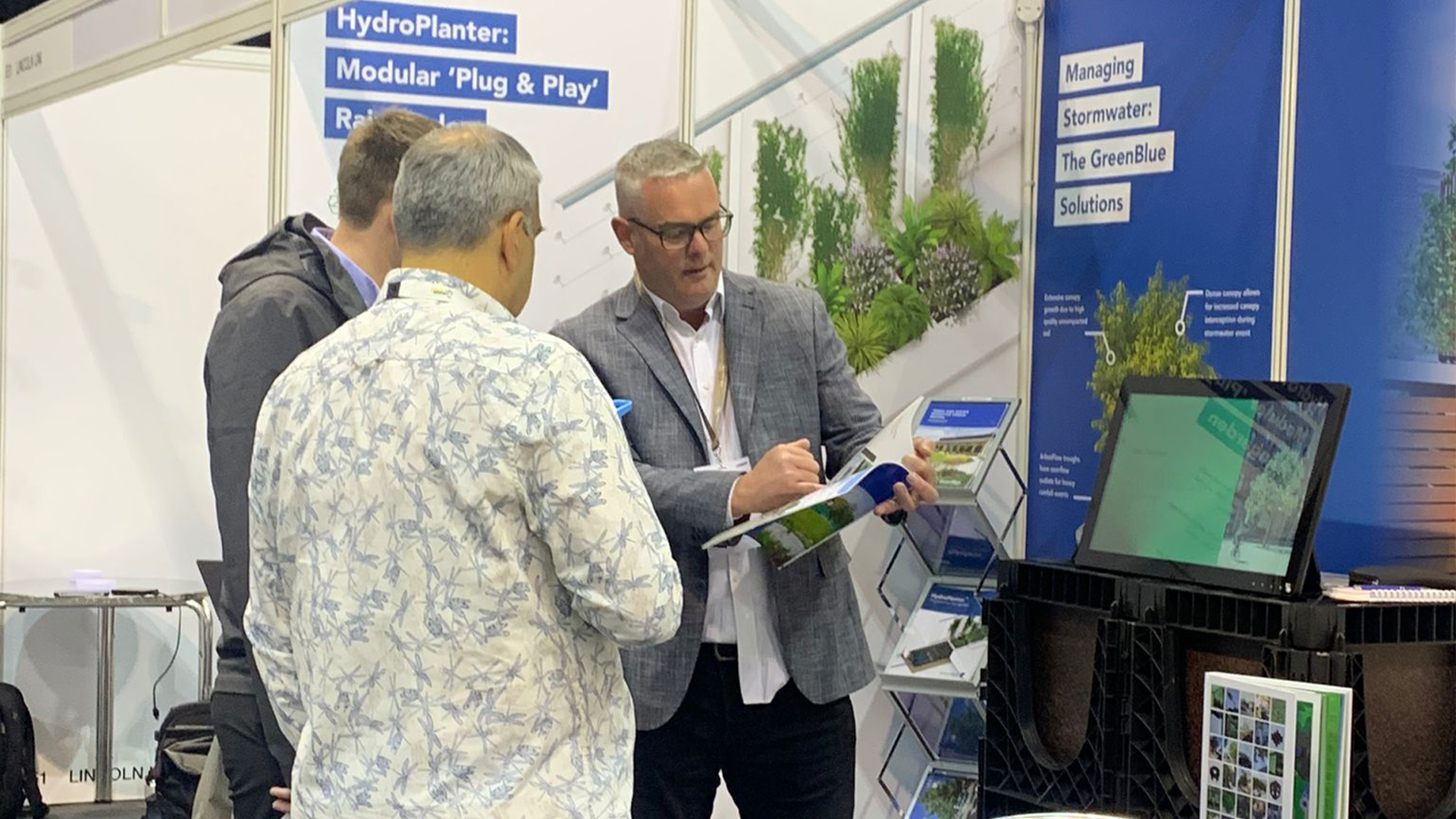
We were delighted to see Government Minister Rebecca Pow who launched the Flood & Coastal Erosion Risk Management Roadmap (FCERM) highlighting priorities to ensure resilience across the UK. Legislation plays a crucial role in managing floods, coastal erosion and urban surface water, governments need to develop robust frameworks to regulate land use and development in flood-prone areas, enforce building codes and construction methods, and ensure climate change considerations are integrated into planning and policy frameworks. It goes without saying, many of the attendees were all discussing the implementation of Schedule 3, as part of the current Flood and Water Management Act 2010.
With the Environment Agency leading the way in terms of careers and continuous learning, they also provided an insight into implementing the Property Flood Resilience Code of Practice alongside CIWEM, an interactive workshop to enable a greater understanding of the roles and responsibilities for all stakeholders involved in managing flooding, highlighting best practice methods.
Climate resilience and adaption was the key theme for Day 2, implementing nature-based solutions that enhance ecosystem benefits. It was fantastic to see the high-level approach to best practice methods that also tackled carbon reduction, with a session on Global Action providing exemplary experience from the Netherlands, United States, and Singapore.
Mott Macdonald highlighted the value of nature-based solutions by delivering a workshop relating to the OFWAT Innovation Fund, highlighting propels from United Utilities, the Rivers Trust and Jacobs.
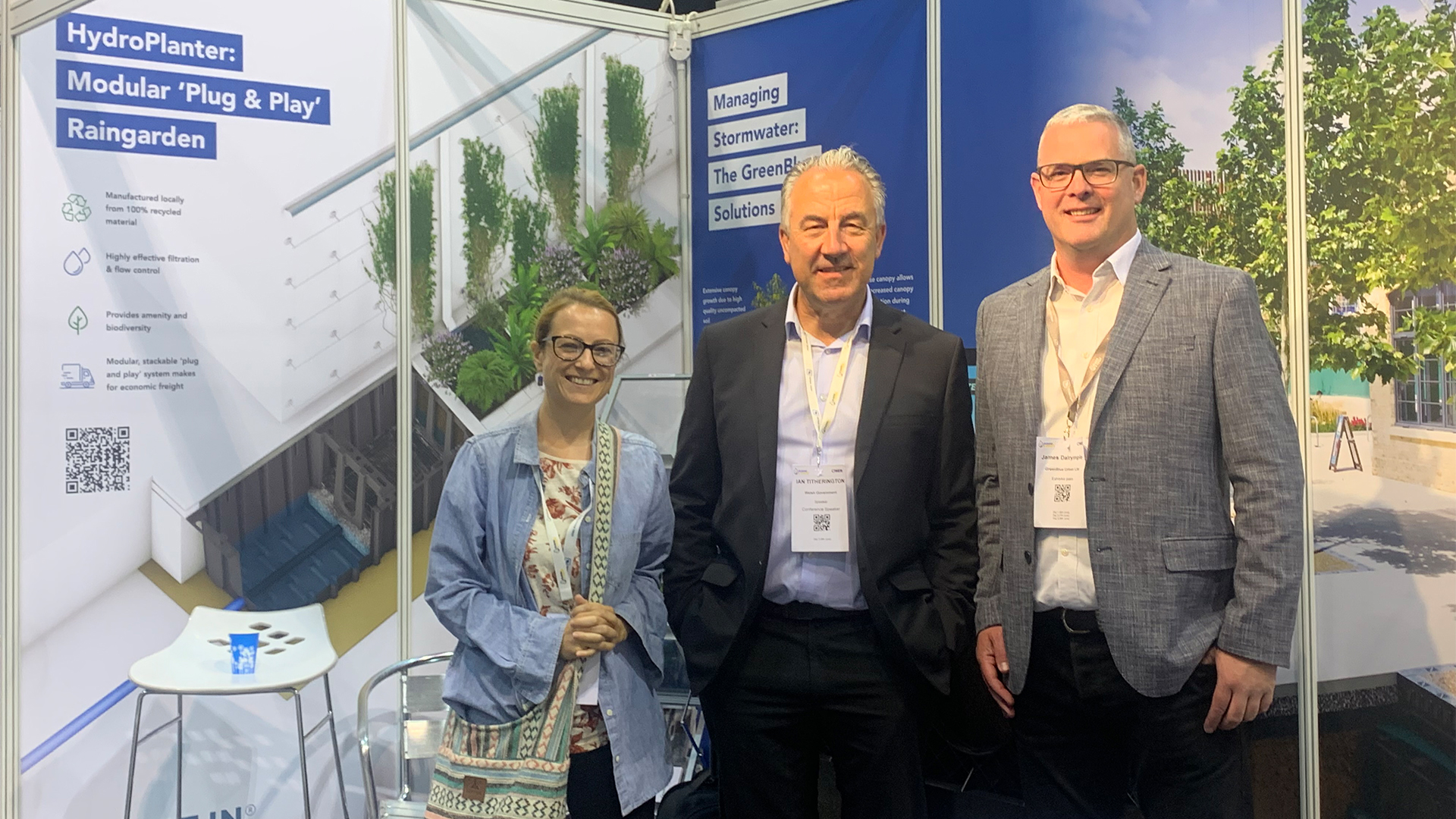
Day 3 saw many innovative workshops including a collaborative project “Enabling Water Smart Communities” tackling cross-sector stewardship from Anglian Water, Arup and CIWEM. Jacobs delivered the “place-based approach” detailing how society needs to come together using holistic approaches to include integrated systems.
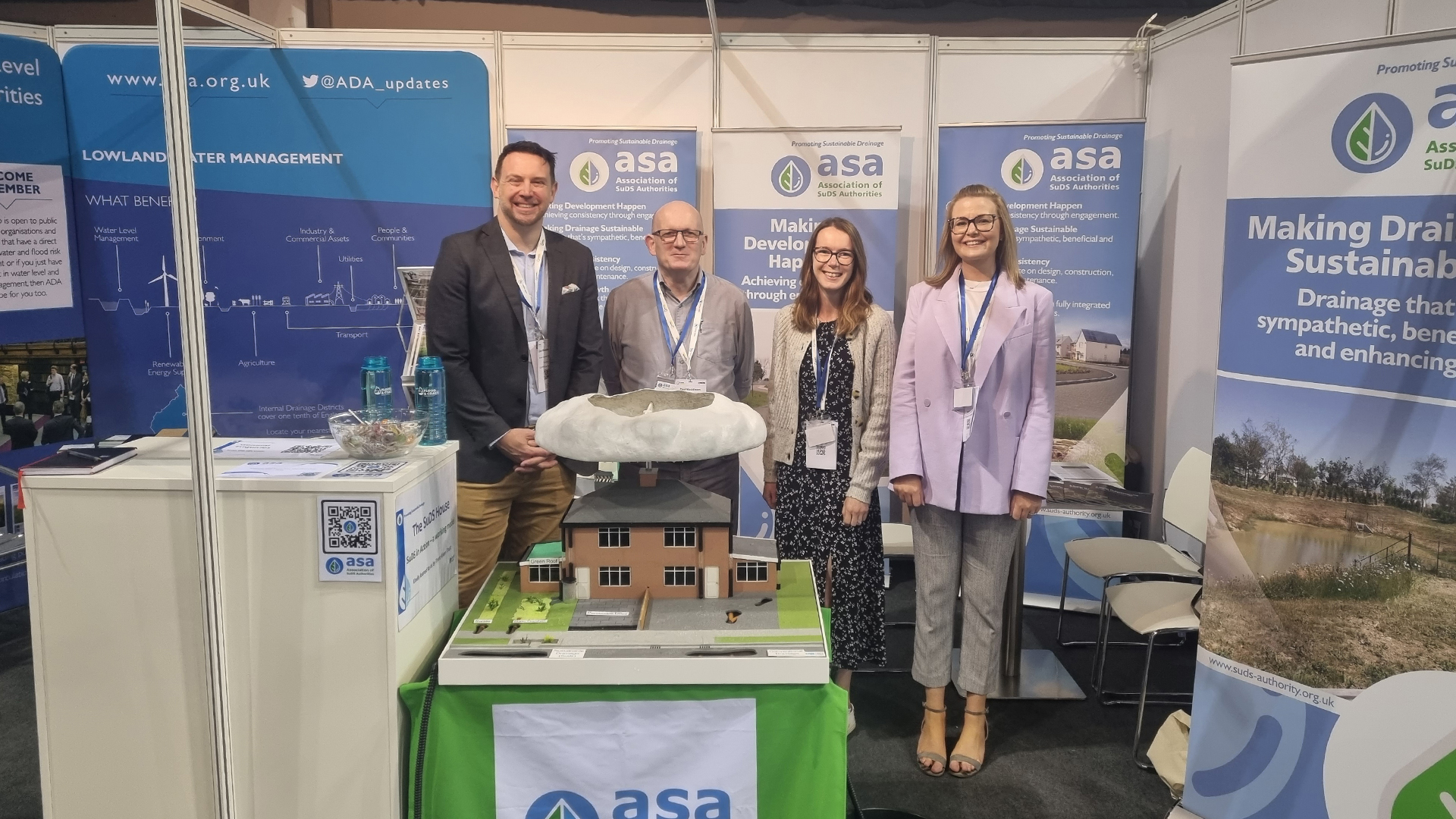
The Association of SuDS Authorities ASA hosted a ‘Breaking down barriers to delivering surface water management’ workshop with colleagues from the Environment Agency and CIWEM. The aim of the workshop was to take the first step in breaking down specific barriers to delivering surface water management by seeking views on “what good looks like” for engagement (being involved in decision-making), communication (aware of progress and what to engage on), working with others to deliver common goals (collaborative delivery), and how to deliver it. The information from the workshop will support the Environment Agency, ASA, and CIWEM to plan future activities related to surface water management and enable more effective partnership working.
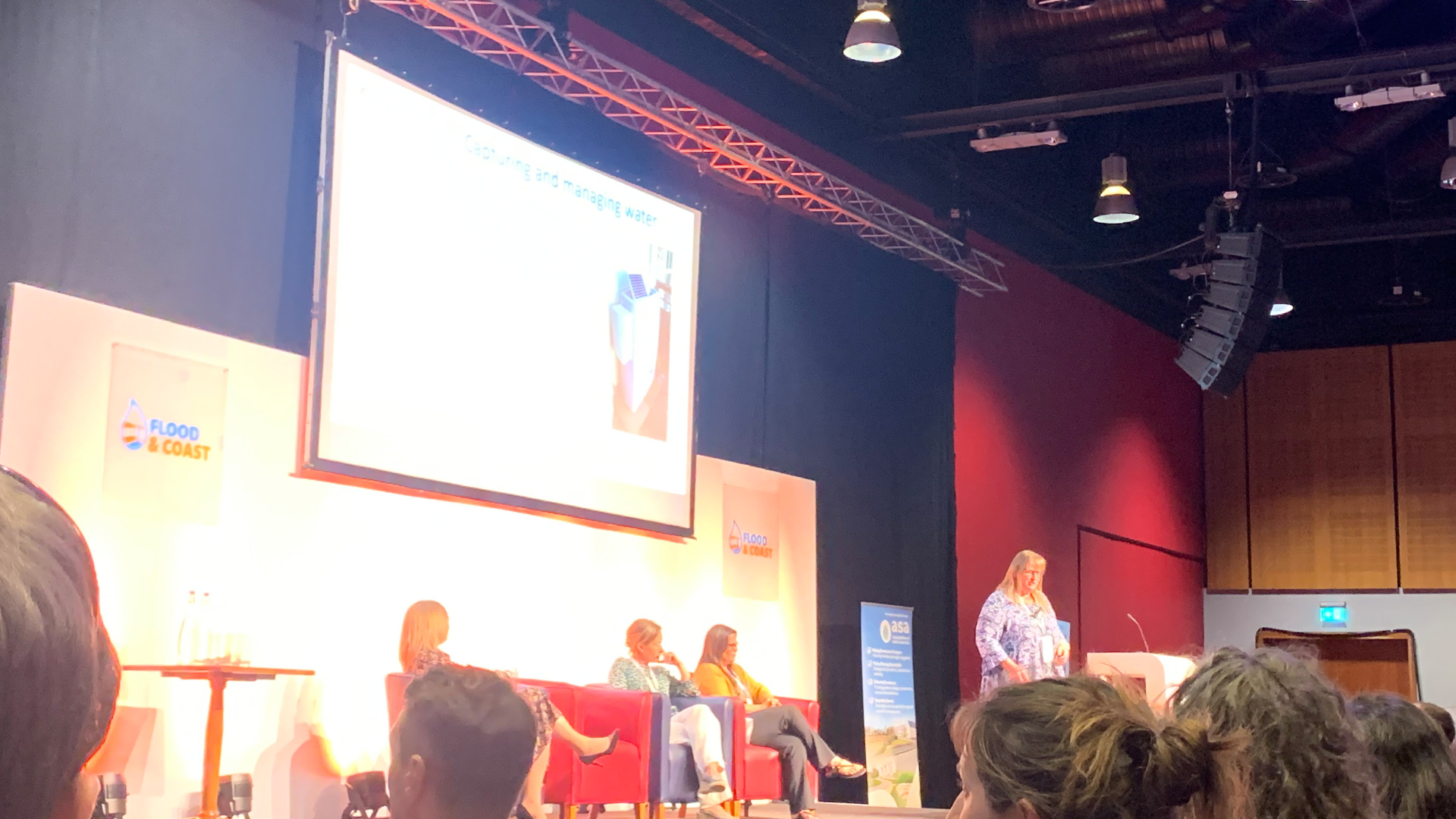
“It was a pleasure to host Day 3 of Flood & Coast 2023 bringing together experts from across the UK on some really important topics facing local authorities and others in the sector, particularly surface water and groundwater. It was great to see so many local authorities attend the workshop to share their views on the important topics covered. The workshop was framed in a positive manner that enabled delegates to look forward and suggest reasonable and achievable solutions.
There was lots of discussion across the three topic areas: engagement, communication and collaboration. We look forward to working with the Environment Agency and CIWEM on the outputs from the workshop soon to continue progress”
Vikki Keeble and Laura Bigley, Co-Chairs of the Association of SuDS Authorities (ASA) were Strategic Partners of Day 3 of the conference.
With sustainability at the heart of everything we do, GreenBlue Urban is committed in our approach to supporting all industry stakeholders in the design and implementation of Nature-Based solutions to elevate the impacts of climate change and the effects of flooding.
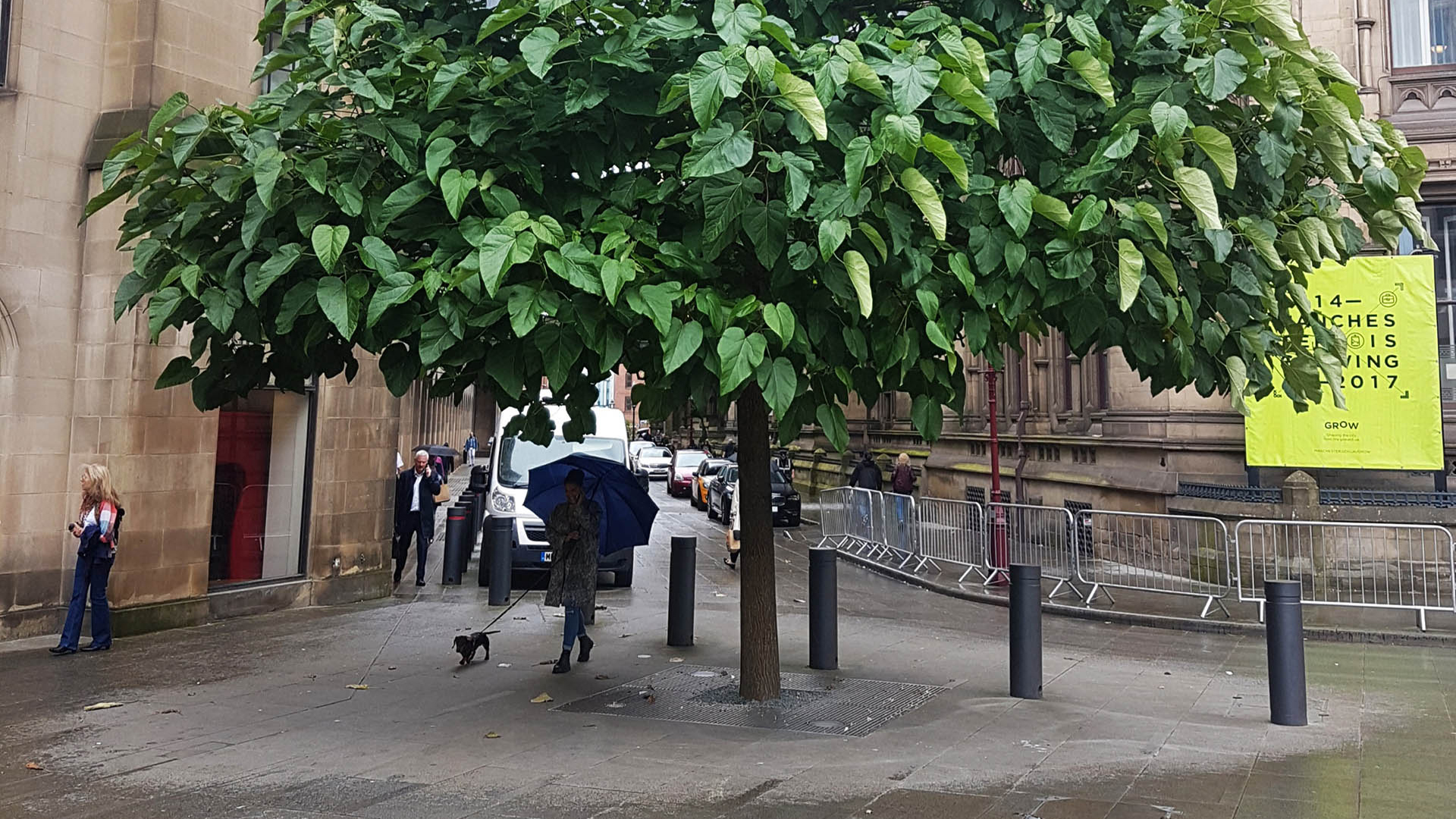
With many collaborative case studies, delivering rain gardens and urban tree pits solutions, we are proud to work alongside water companies, engineers, landscape designers and local authorities, to enable a successful outcome. GreenBlue fully supports our mission of acting as the interface between nature and the built environment.
Creating healthier urban spaces in harmony with nature.


